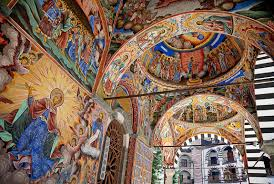God is divine, we are human, animals are sentient, plants are organic, and minerals are matter. This is the hierarchy or sacred order of existence, and so the peak of the […]
Read more

God is divine, we are human, animals are sentient, plants are organic, and minerals are matter. This is the hierarchy or sacred order of existence, and so the peak of the […]
Read more
“Hosanna Sunday” (Syriac, Had b-šabo dooša3ne), is one of the great feasts of the Syriac Christian calendar. It is not as important as Easter, but it is more than just […]
Read more
A friend has drawn my attention to this remarkable article: “The Data on the Death of Religious Orders”, by two academics, Jack P. Oostveen and David L. Sonnier, at https://onepeterfive.com/data-death-religious-orders/ That […]
Read more
I: The Preparation for Great Lent The word “lent” comes from a root which means “discipline”, so that “Lent” is the Season of Self-Discipline. Its imagery is marked, above all, […]
Read more
This is my speech at the book launch for An Introduction to the Maronite Faith, Parliament House, NSW, 13 February 2018. It took place in the decorous Jubilee Room (pictured). The […]
Read more
There was food for thought in Jordan Peterson’s recent interview by an English television journalist who was woefully out of her depth. She spent the entire interview misrepresenting him in […]
Read more
The Issues How do we know of God? By God, I mean the creator of the universe and all which is in it, including ourselves. What do we know of […]
Read more
Douglas Murray’s The Strange Death of Europe: Immigration, Identity and Islam (Bloomsbury, 2017) is an intelligent, stimulating and important book. It really is about the “strange death” of a continent: […]
Read moreFurther to recent discussions of the proper form of layout for Maronite churches, I chanced across the splendidly illustrated and recent book by Nicholas N. Patricios, The Sacred Architecture of […]
Read more